Related Research Articles

Vladimir Yevgrafovich Tatlin was a Russian, Ukrainian, and Soviet painter, architect and stage-designer. Tatlin achieved fame as the architect who designed The Monument to the Third International, more commonly known as Tatlin's Tower, which he began in 1919. With Kazimir Malevich he was one of the two most important figures in the Soviet avant-garde art movement of the 1920s, and he later became an important artist in the constructivist movement.

Lyubov Sergeyevna Popova was a Russian-Soviet avant-garde artist, painter and designer.

Ryan is a 2004 short animated documentary film created and directed by Chris Landreth about Canadian animator Ryan Larkin, who had lived on skid row in Montreal as a result of drug and alcohol abuse. Landreth's chance meeting with Larkin in 2000 inspired him to develop the film, which took 18 months to complete. It was co-produced by Copper Heart Entertainment and the National Film Board of Canada (NFB), and its creation and development is the subject of the NFB documentary Alter Egos. The film incorporated material from archive sources, particularly Larkin's works at the NFB.

Arthur Lipsett was a Canadian filmmaker with the National Film Board of Canada. His short, avant-garde collage films, which he described as "neither underground nor conventional”, contain elements of narrative, documentary, experimental collage, and visual essay. His first film, Very Nice, Very Nice, was nominated for an Academy Award.

Constructivism is an early twentieth-century art movement founded in 1915 by Vladimir Tatlin and Alexander Rodchenko. Abstract and austere, constructivist art aimed to reflect modern industrial society and urban space. The movement rejected decorative stylization in favour of the industrial assemblage of materials. Constructivists were in favour of art for propaganda and social purposes, and were associated with Soviet socialism, the Bolsheviks and the Russian avant-garde.

Tatlinʼs Tower, or the project for the Monument to the Third International (1919–20), was a design for a grand monumental building by the Russian artist and architect Vladimir Tatlin, that was never built. It was planned to be erected in Petrograd after the October Revolution of 1917, as the headquarters and monument of the Communist International.

Constructivist architecture was a constructivist style of modern architecture that flourished in the Soviet Union in the 1920s and early 1930s. Abstract and austere, the movement aimed to reflect modern industrial society and urban space, while rejecting decorative stylization in favor of the industrial assemblage of materials. Designs combined advanced technology and engineering with an avowedly communist social purpose. Although it was divided into several competing factions, the movement produced many pioneering projects and finished buildings, before falling out of favour around 1932. It has left marked effects on later developments in architecture.
Time, Forward! is a 1965 Soviet drama film directed by Sofiya Milkina and Mikhail Schweitzer based on a novel with the same name and a screenplay by Valentin Kataev. The film was produced by Mosfilm, a unit of the State Committee for Cinematography (Goskino). The famous musical score was composed by Georgy Sviridov.
Richard Roger Reeves is a Canadian animated filmmaker. He is known for his whimsical abstract animated films created using a drawn on film technique.
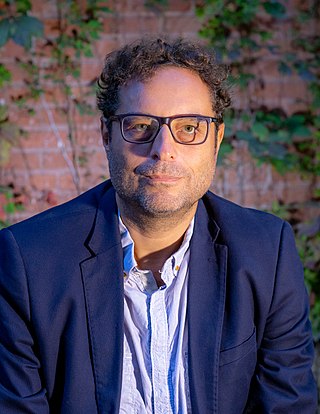
Theodore Asenov Ushev is a Bulgarian animator, film director and screenwriter based in Montreal. He is best known for his work at the National Film Board of Canada, including the 2016 animated short Blind Vaysha, which was nominated for an Academy Award. He is a Chevalier of the Ordre des Arts et des Lettres of France.
Chris Robinson is an animation, film, literature and sports writer, author of numerous books and artistic director of the Ottawa International Animation Festival (OIAF). He also wrote the screenplay for the Jutra Award and Genie Award-winning animated documentary Lipsett Diaries, directed by Theodore Ushev. In 2020, Robinson was awarded for his Outstanding Contribution to Animation Studies by Animafest Zagreb.
Drux Flux is a 2008 animated short by Theodore Ushev, inspired by Herbert Marcuse’s treatise One-Dimensional Man.

Lipsett Diaries is a 2010 short animated documentary about the life and art of collage filmmaker Arthur Lipsett, animated and directed by Theodore Ushev and written by Chris Robinson. The 14-minute film was produced by the National Film Board of Canada in Montreal, where Lipsett had worked from 1958 to 1972, before committing suicide in 1986. The film is narrated by Xavier Dolan.
cNote is a 2005 National Film Board of Canada animated short by Christopher Hinton, which received the Genie Award for Best Animated Short at the 26th Genie Awards. In this visual music short, Hinton animates to an original modern classical composition by Montreal-based composer Michael Oesterle.
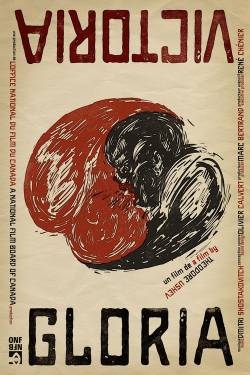
Gloria Victoria is a 2013 3-D anti-war animated short by Theodore Ushev, produced in Montreal by the National Film Board of Canada (NFB). A film without words set to the music of Shostakovich's Leningrad Symphony, Victoria Gloria is final film in a trilogy of NFB animated shorts by Ushev on art, ideology and power, following Tower Bawher (2005) and Drux Flux (2008).
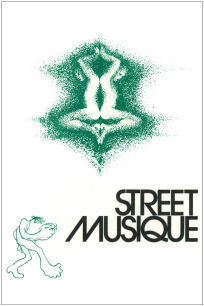
Street Musique is a 1972 animated short film by Ryan Larkin produced by the National Film Board of Canada (NFB). It is a line animation of "music as performance", in which actions of the film's characters are choreographed to the music of street musicians.
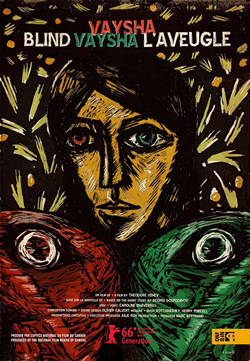
Blind Vaysha is a 2016 animated short by Theodore Ushev, produced by Marc Bertrand for the National Film Board of Canada, with the participation of ARTE France. Based on a story by Georgi Gospodinov, the film tells the story of a girl who sees the past out of her left eye and the future from her right—and so is unable to live in the present. Montreal actress Caroline Dhavernas performed the narration for the film, in both its French and English language versions. The film incorporates music from Bulgarian musician and composer Kottarashky and is his and Ushev's fourth collaboration.
Demoni is a Canadian-Bulgarian animated short film, directed by Theodore Ushev and released in 2012. A music video for the song of the same name by Bulgarian musician Kottarashky, the film depicts scenes of Eastern European folk art on a spinning vinyl record.
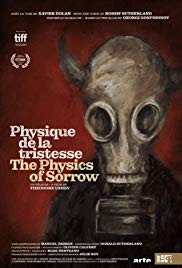
The Physics of Sorrow is a Canadian animated short film, directed by Theodore Ushev and released in 2019.
Cameras Take Five is a Canadian animated short film, directed by Steven Woloshen and released in 2003. The film is a scratch film comprising abstract improvisational line drawings set to the tune of the jazz standard "Take Five".
References
- 1 2 3 Robinson, Chris (February 2, 2006). "Animators Unearthed: Tower Bawher by Theodore Ushev". Animation World Network . Retrieved 30 December 2009.
- 1 2 "Tower Bawher". Collection. National Film Board of Canada. Retrieved 30 December 2009.
- ↑ Robinson, Chris (4 June 2010). Animators Unearthed: A Guide to the Best of Contemporary Animation. Continuum. p. 130. ISBN 978-0826429568.